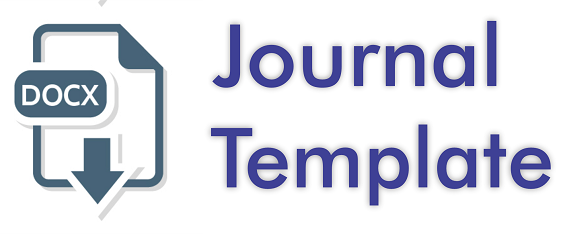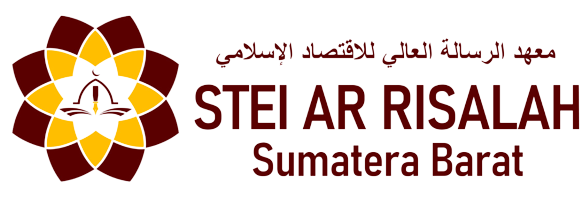Pembiayaan Sukuk dalam Skema Kerjasama Pemerintah dan Badan Usaha (KPBU): Pengembangan Sumber Daya Manusia (SDM) di Sektor Energi dan Sumber Daya Mineral (ESDM) yang Berkelanjutan
DOI:
https://doi.org/10.59107/ri.v2i1.25Keywords:
Sukuk Financing, Human Resources, Energy dan Mineral Recources Sector, SustainibilityAbstract
Indonesia is one of the countries in the world that has a large potential for energy and mineral resources. Therefore, this potential can be managed by the government for social welfare. This study aims to develop a financing model using Sukuk as the main source of financing instruments. The scheme used in this sukuk financing is Public-Private Partnership. This research adopts a qualitative approach with a descriptive analysis method through a literature study. The results of the study demonstrate that the design of the development model for financing human resource development can be executed using the Government and Business Entity Cooperation scheme supported by funds from Sukuk. This scheme offers several benefits for related ministries, business entities, the community, and human resources working in the energy and mineral sector. The government obtains additional capital and partners in conducting human resource education and training. Business entities generate income from the services provided and acquire additional capital. Communities can participate in investing through the development and financing model of Sukuk, and the number of beneficiaries of education and training increases. It is hoped that the financing development model with the KPBU and sukuk schemes can be welcomed and responded to by the government by issuing a legal umbrella as the basis for its implementation. For future research, it is also necessary to design the next mechanism to link the return on investment with the revenue earned from project operations.
Downloads
References
Amanatillah, D., & Anggraini, L. (2020). Potensi Pengembangan Sukuk Berbasis Wakaf Untuk Pembangunan Infrastruktur di Indonesia. SHIBGHAH: Journal of Muslim Societies, 2(2), 129–145.
Darussalam, A. Z., Adilah, A. N., Berlian, & Danial, M. (2019). Konsep Pertumbuhan Ekonomi dan Kesejahteraan Dalam Islam. Jurnal Iqtisaduna, 5(2), 266.
Fadlan, F. (2019). Konsep Kesejahteraan dalam Ekonomi Islam: Perspektif Maqashid al-
Syariah. Jurnal UIN Sunan Ampel Surabaya, 1–22.
Fauziah, S., & Nurwahidin. (2020). Pembiayaan Infrastruktur dengan Sukuk Negara di Indonesia : Prosedur dan Struktur. Jurnal Manajemen, Ekonomi Dan Akuntansi, 4(1), 257–270.
Habibaty, D. M. (2020). Kompetensi Nazhir Pada Wakaf Produktif Ditinjau Dari Undang-Undang No 41 Tahun 2004 Tentang Wakaf. Al-Awqaf: Jurnal Wakaf Dan Ekonomi Islam, 10(2), 154–161.
Humas EBTKE. (2022). Pengembangan SDM Jadi Faktor Penentu Transisi Energi.
Ilmia, A. (2021). Sukuk Negara Dan Pembangunan Infrastruktur Di Indonesia. Finansha- Journal of Sharia Financial Management, 1(2), 22–35. https://doi.org/10.15575/fsfm.v1i2.10761
Iqball, M., Pujiandi, A., & Nusantara, U. D. (2022). PEMANFAATAN PEMBANGUNAN SALURAN PEMBAWA AIR BAKU ( SPAB ) MENGGUNAKAN SKEMA KPBU. 2(2), 1–14.
Kurniawan, T., & Rahman, A. A. (2019). Project Based Sukuk (PBS) and Its Implementation in Economic Development in Indonesia. Al-’Adalah, 16(1), 41–66. https://doi.org/10.24042/adalah.v16i1.3988
Labola, Y. A. (2019). Konsep Pengembangan Sumber Daya Manusia Berbasis Kompetensi, Bakat dan Ketahanan dalam Organisasi. Jurnal Manajemen Dan Kewirausahaan, 7(1), 28–35. https://doi.org/10.26905/jmdk.v7i1.2760
Lestari, S., Alexandra, E. T., & Hotman, E. (2022). Peningkatan kapasitas sumber daya manusia pada bidang panas bumi di kementerian energi dan sumber daya mineral. 4(1), 31–41.
Maghfiroh, A. (2021). Analisis Pengembangan Sumber Daya Manusia Dalam Perspektif Syariah. Jurnal Ilmiah Ekonomi Islam, 7(1), 403. https://doi.org/10.29040/jiei.v7i1.2138
Manzoor, D., Karimirizi, M., & Mostafavisani, A. (2017). Financing infrastructure projects based on risk sharing model: Istisna sukuk. Journal of Emerging Economies and Islamic Research, 5(3), 72. https://doi.org/10.24191/jeeir.v5i3.8832
Maulana, M. R. (2021). Pemahaman dan Pembelajaran Tahap Perencanaan dan Penyiapan Pembangunan Infrastruktur di Indonesia Melalui Skema Kerja Sama Pemerintah dan Badan dalam Penyediaan Infrastruktur (KPBU). JISIP (Jurnal Ilmu Sosial Dan Pendidikan), 5(1). https://doi.org/10.58258/jisip.v5i1.1646
Mawardi, I., Widiastuti, T., & Al Mustofa, M. U. (2022). Constraints and strategies for municipal Sukuk issuance in Indonesia. Journal of Islamic Accounting and Business Research, 13(3), 464–485. https://doi.org/10.1108/JIABR-03-2021-0082
Mudiparwanto, W. A., & Gunawan, A. (2022). Urgensi Pembentukan Peraturan Daerah tentang Kerja Sama Pemerintah dengan Badan Usaha dalam Penyediaan Infrastruktur. Diversi Jurnal Hukum, 8(1), 111–138.
PII, P. (2016). Acuan Alokasi Risiko Kerjasama Pemerintah dengan Badan Usaha (KPBU) di Indonesia.
Ramadani, T., Pakpahan, F., Pradana, S. A., Supriyanto, M. A., & Mardiyono, E. (2019). Implementasi Kebijakan Satu Peta Energi Sumber Daya Mineral (Esdm One Map) di Kementerian Energi Sumber Daya Mineral Republik Indonesia. Matra Pembaruan, 3(2),
–118. https://doi.org/10.21787/mp.3.2.2019.109-118
Rusby, Z., Arif, M., Hamzah, Z., & Ayu Lestari, D. (2022). Analisis Strategi Pengembangan Sumber Daya Manusia Dalam Meningkatkan Keunggulan Kompetitif Di (Bmt) Al-Ittihad Pekanbaru. Jurnal Tabarru’ : Islamic Banking and Finance, 5(November), 300–310.
Suardi, D. (2021). Makna Kesejahteraan Dalam Sudut Pandang Ekonomi Islam. Islamic Banking : Jurnal Pemikiran Dan Pengembangan Perbankan Syariah, 6(2), 321–334. https://doi.org/10.36908/isbank.v6i2.180
Suminto, A., Ramdani Harahap, S. A., & Zulqurnaini, A. B. (2021). Ekonomi Dalam Pandangan Islam dan Perannya Dalam Peningkatan Daya Saing Sumber Daya Manusia. Invest Journal of Sharia & Economic Law, 1(1), 1–28. https://doi.org/10.21154/invest.v1i1.2564
Surachman, E. N., Hermawan, R. P., Handayani, D., & Astuti, E. (2022). Evaluation of Sovereign Sukuk as a government financing instrument with stakeholder theory: a moving forward policy from Indonesia’s experience. Journal of Islamic Accounting and Business Research, 14(2), 315–338. https://doi.org/10.1108/JIABR-03-2022-0066
Downloads
Published
Issue
Section
License
Copyright (c) 2023 RISALAH IQTISADIYAH: Journal of Sharia Economics

This work is licensed under a Creative Commons Attribution 4.0 International License.
License
The non-commercial use of the article will be governed by the Creative Commons Attribution license as currently displayed on http://creativecommons.org/licenses/by/4.0/. This licence allows the user to distribute, remix, tweak, and build upon the licensed work, including for commercial purposes, as long as the original author is credited.
Author’s Warranties
The author warrants that the article is original, written by stated author/s, has not been published before, contains no unlawful statements, does not infringe the rights of others, is subject to copyright that is vested exclusively in the author and free of any third party rights, and that any necessary written permissions to quote from other sources have been obtained by the author/s.
User Rights
Under the Creative Commons Attribution license, the author(s) and users are free to share (copy, distribute and transmit the contribution).
Rights of Authors
Authors retain the following rights:
- copyright, and other proprietary rights relating to the article, such as patent rights,
- the right to use the substance of the article in future own works, including lectures and books,
- the right to reproduce the article for own purposes, provided the copies are not offered for sale,
- the right to self-archive the article.
Co-Authorship
If the article was prepared jointly with other authors, the signatory of this form warrants that he/she has been authorized by all co-authors to sign this agreement on their behalf, and agrees to inform his/her co-authors of the terms of this agreement.
Termination
This agreement can be terminated by the author or RISALAH IQTISADIYAH: JOURNAL OF SHARIA ECONOMICS upon two months’ notice where the other party has materially breached this agreement and failed to remedy such breach within a month of being given the terminating party’s notice requesting such breach to be remedied. No breach or violation of this agreement will cause this agreement or any license granted in it to terminate automatically or affect the definition of RISALAH IQTISADIYAH: JOURNAL OF SHARIA ECONOMICS.
Royalties
This agreement entitles the author to no royalties or other fees. To such extent as legally permissible, the author waives his or her right to collect royalties relative to the article in respect of any use of the article by RISALAH IQTISADIYAH: JOURNAL OF SHARIA ECONOMICS or its sublicensee.
Miscellaneous
RISALAH IQTISADIYAH: JOURNAL OF SHARIA ECONOMICS will publish the article (or have it published) in the Journal, if the article’s editorial process is successfully completed and RISALAH IQTISADIYAH: JOURNAL OF SHARIA ECONOMICS or its sublicensee has become obligated to have the article published. RISALAH IQTISADIYAH: JOURNAL OF SHARIA ECONOMICS may conform the article to a style of punctuation, spelling, capitalization and usage that it deems appropriate. The author acknowledges that the article may be published so that it will be publicly accessible and such access will be free of charge for the readers. RISALAH IQTISADIYAH: JOURNAL OF SHARIA ECONOMICS will be allowed to sublicense the rights that are licensed to it under this agreement.



.png)
.png)






